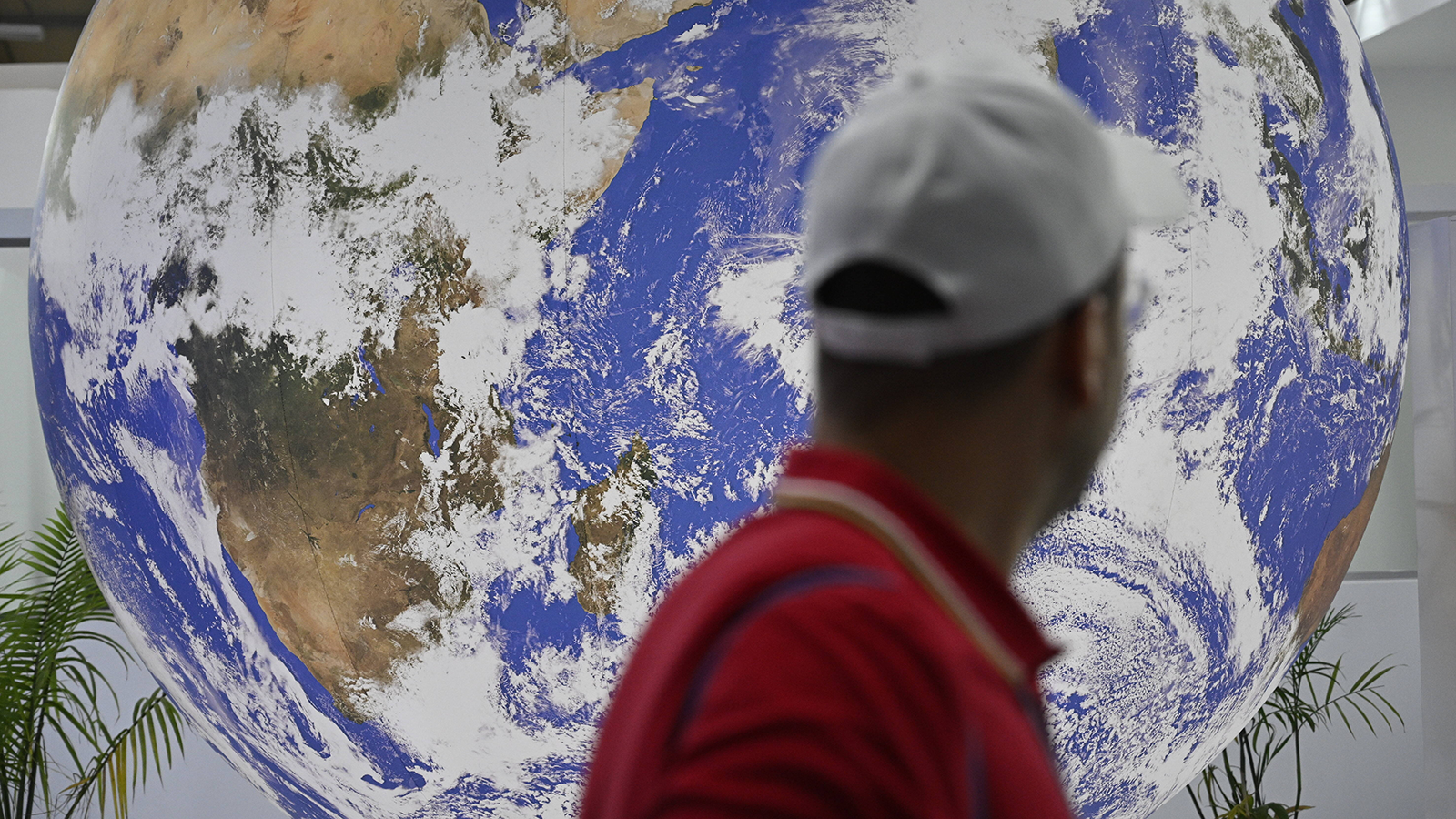How leaders from the African continent fight the climate crisis
Young climate activists taking part in international climate negotiations and a pavilion on climate mobility: a spotlight on two engagements of the Foundation at the UN Climate Change Conference in Sharm El-Sheikh, Egypt.
“I'm concerned about the environment, I’m concerned about farming in Ghana, and that the next generation doesn't understand how the climate is changing,” says Evelyn Addor of the Ghanaian organization EcoCare on the fifth day of the UN Climate Change Conference in Sharm El-Sheikh, Egypt. She is a Climate Youth Negotiator, supported by the Robert Bosch Stiftung. As a member of the official Ghanaian delegation, Evelyn brought young people's views into the climate negotiations at COP27. Yet, on this day, negotiations seem to be stalled: “We're not making any progress. We're just quibbling over individual words,” Addor laments.
One sticking point at the conference: loss and damage
For the first time at a climate conference, the topic of “loss and damage” was included as a separate negotiating track. “In southern Ghana, the sea level is rising. People are being forced to abandon their land and migrate. In the north, the savannah is turning into desert, and in the center of Ghana, which is the breadbasket of our country, we can no longer produce enough food,” says Addor. Representatives from the Global South have had high expectations for compensation payments for countries already hard hit by the climate crisis. Negotiations on this became a sticking point at the conference, and corresponding payments were agreed on only at last-minute.
Thus far, young people, women, farmers, representatives of civil society and indigenous groups, but also city representatives have not been sufficiently visible in the international climate processes. This is especially true for African countries. The Foundation enabled around fifty of them to actively participate in the climate conference to make their views heard – as voices from areas where the climate crisis is particularly hard-hitting are critical. They make the consequences of climate change tangible and give the often abstract discussions about climate justice a human face.
“Climate mobility should be seen as a way to adapt to climate change to prevent further loss and damage.”
Concrete strategies to prepare for climate mobility
According to World Bank estimates, around 200 million people on the African continent alone will have to leave their homes by 2050 as a result of climate change – because droughts or floods will deprive them of their livelihoods. The Africa Climate Mobility Initiative (ACMI), which is funded by the Robert Bosch Stiftung, has identified – based on current climate research findings and surveys – those regions that will be particularly affected and where people will move. In Sharm El-Sheikh, the initiative presented a report detailing likely climate hotspots and migration movements.
In this way, it offers policymakers both on the ground and at the regional level concrete entry points for preparing for climate mobility. The majority of those affected in Africa will migrate within their country or region, initially moving to nearby cities. Cities on the African continent therefore need support to create housing and jobs. Therefore, the Foundation, together with the Mayors Migration Council, set up a fund for the first five African cities last year. Other funders have joined in the meantime.
With background conversations and a busy program of events at the Climate Mobility Pavilion, the Africa Climate Mobility Initiative and the Global Centre for Climate Mobility succeeded in putting the issue of climate mobility prominently on the agenda, while at the same time focusing on solutions. The official cover decision of COP27 now mentions human mobility and forced displacement under the loss and damage section - a diplomatic success and an important step, because, according to Kamal Amakrane, director of ACMI: “Climate mobility should be seen as a way to adapt to climate change to prevent further loss and damage.”

